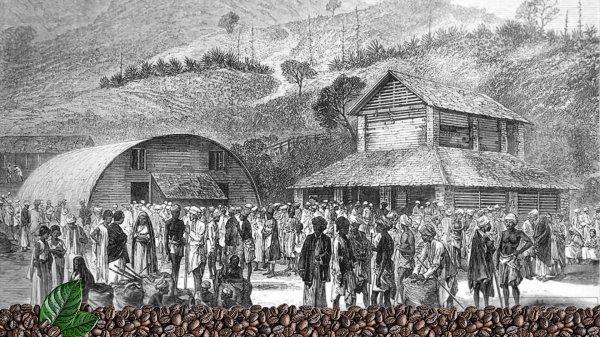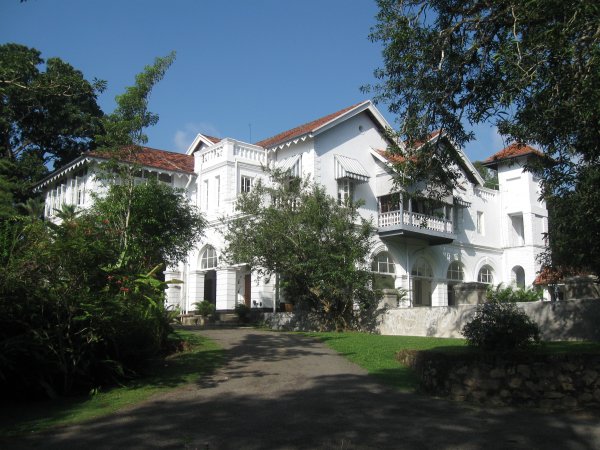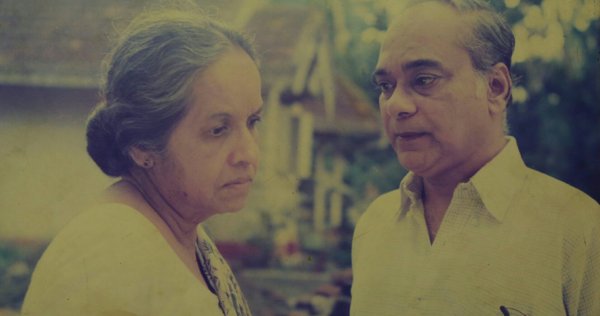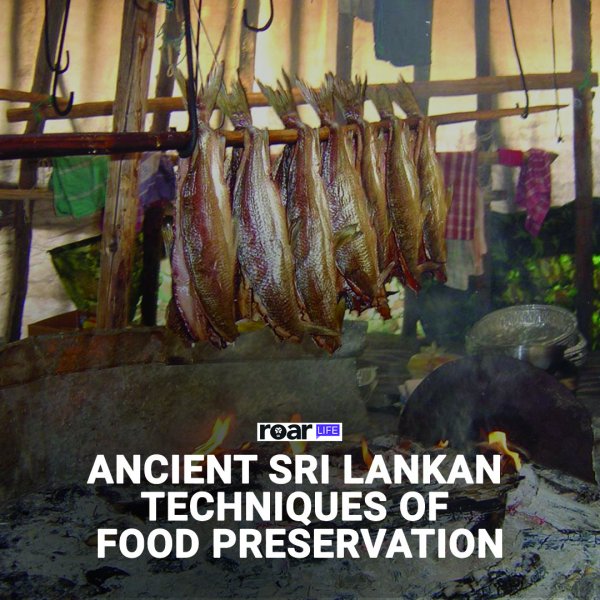
The reigning currency of the early-2000s entertainment industry may as well have been DVDs. More accessible, of higher quality and more conveniently sized than the VHS cassettes that preceded them, the advent of DVDs put movie magic within reach of anyone who had a DVD player, a TV and a composite cable, or even just a laptop with a DVD drive, at home — which, by the late 2000s, were most working and upper class Sri Lankans.
With the increasing popularity and minimal consequences for piracy, most major cities became crowded with small DVD stores, tucked away in a nondescript single room-sized space every few streets. Floor-to-ceiling shelves held new and old releases stacked one on top of another, placed inside a DVD cover printed on paper and slid into a polythene sleeve in lieu of a proper case. Most shops sold a combination of films in the English, Hindi and Tamil languages, often with dodgy subtitles formatted wrong or just slightly either too fast or too slow to sync with the audio.
Fewer and fewer of those shops now remain. The few that do — Saxon, on Galle Road, and Video International, which has branches both off Galle Road and in Thimbirigasyaya, for example — subsist on an increasingly dwindling clientele of loyal customers. With every passing month, even this is proving insufficient to keep these stores open much longer.
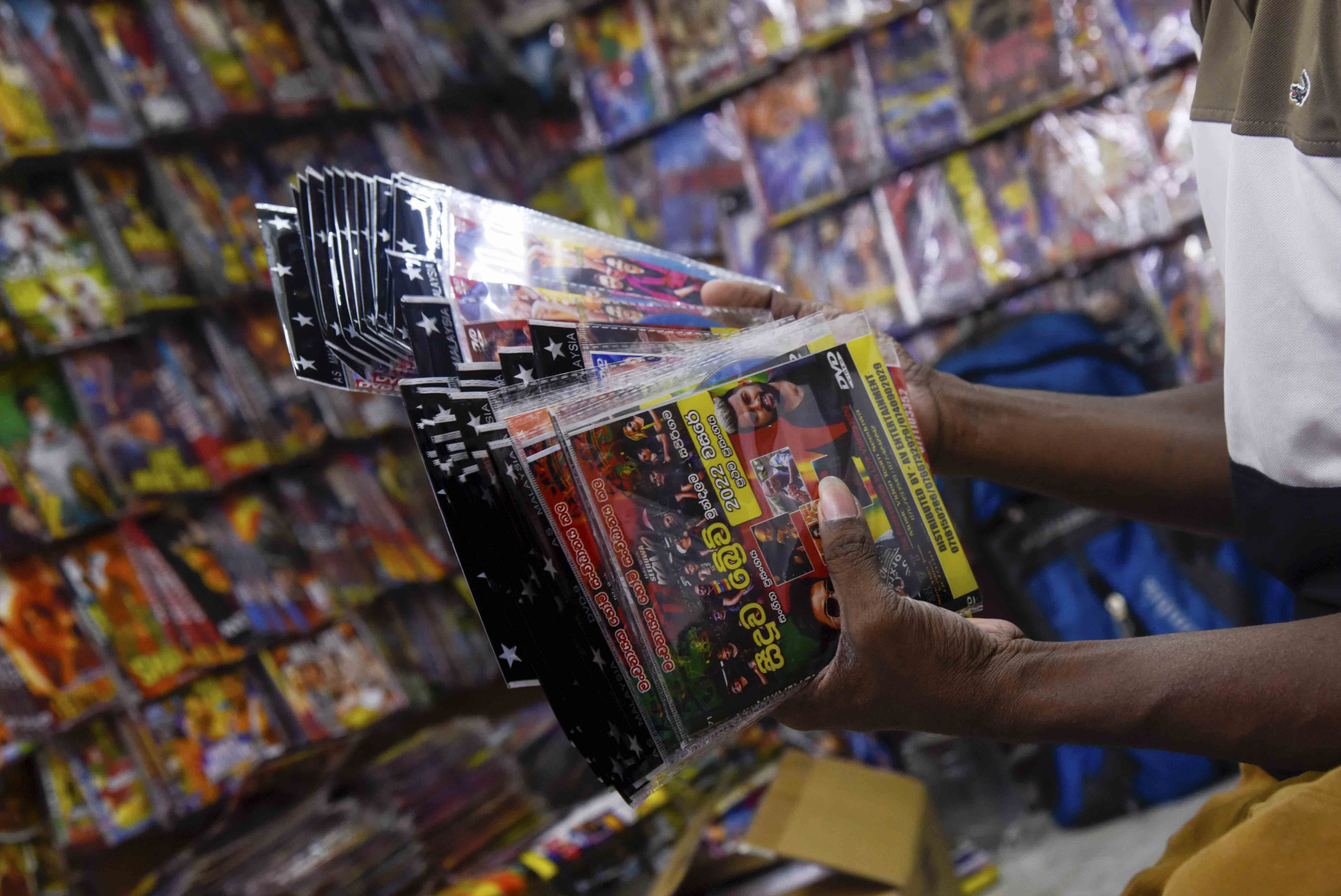
On Their Way Out
“After the Easter bombings [in April 2019], business lessened,” Lahiru*, an employee at Saxon told Roar Media. “Then we had the lockdowns, and that’s when Netflix and [other streaming services] started gaining popularity.”
Saxon opened in 2005, and has been a relatively popular store due to its central location and wide variety of movie options. Post-lockdowns, however, they’re lucky if they get even a handful of customers a day. “Not many people buy DVDs anymore,” Lahiru said. “Even I watch movies on the internet now, because it’s so easy to just watch it on my phone.”
Sanath*, who has worked for over a decade at the Galle Road branch of Video International told Roar Media shrinking sales were the result of a combination of COVID-induced lockdowns and the country’s worsening economic situation. “Business is bad,” he said, “mainly because people are spending less money.”
Still, he continued, this isn’t necessarily a new trend. DVD and Blu-ray sales have been on the decline for years pre-COVID, but the increasing availability of relatively high-quality online streaming services in Sri Lanka — both legal, paid-subscription sites like Netflix, and illegal, free sites for streaming and downloads — has made the local DVD business highly unpredictable. “Earlier, we could predict our sales, predict how many customers we might get on a certain day or week,” Sanath said. “Now, we can’t even do that.”
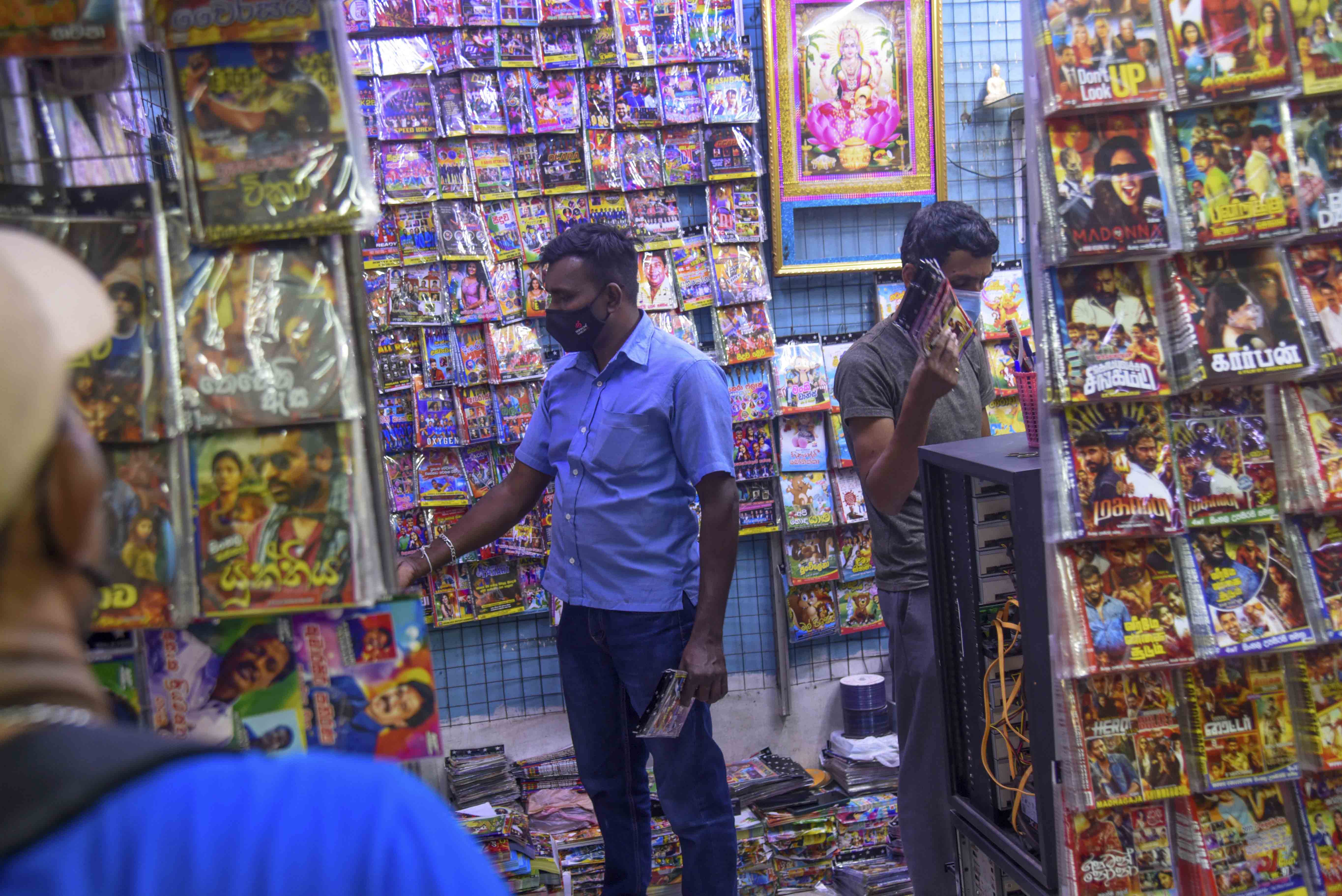
Niche Markets
Ihsan Raji loves movies. A film enthusiast, the Blu-ray collection in his home cinema looks a little bit like a private DVD shop of its own, although much neater, more organised, and exceptionally well taken care of. While Raji also sometimes uses streaming services, he believes that local stores selling Blu-ray discs and the newer, higher quality Ultra HD Blu-rays — also referred to as 4K Blu-rays — could subsist on a niche market of collectors like himself.
“I look for quality — sound quality, picture quality. There is a significant difference on a disc compared to streaming,” he told Roar Media. “And again, you have no problems with the internet connection.”
Sri Lanka is ranked among one of the worst countries in the world for internet quality, a fact that may come into play when weighing the possible fate of local DVD stores. “If data charges come down, the DVD business will vanish,” Sanath said. “But,” he continues, “they may still stick around, because LaserDiscs, records and things are coming back again. So those might become like collectors’ items. So it might become a kind of niche market.”
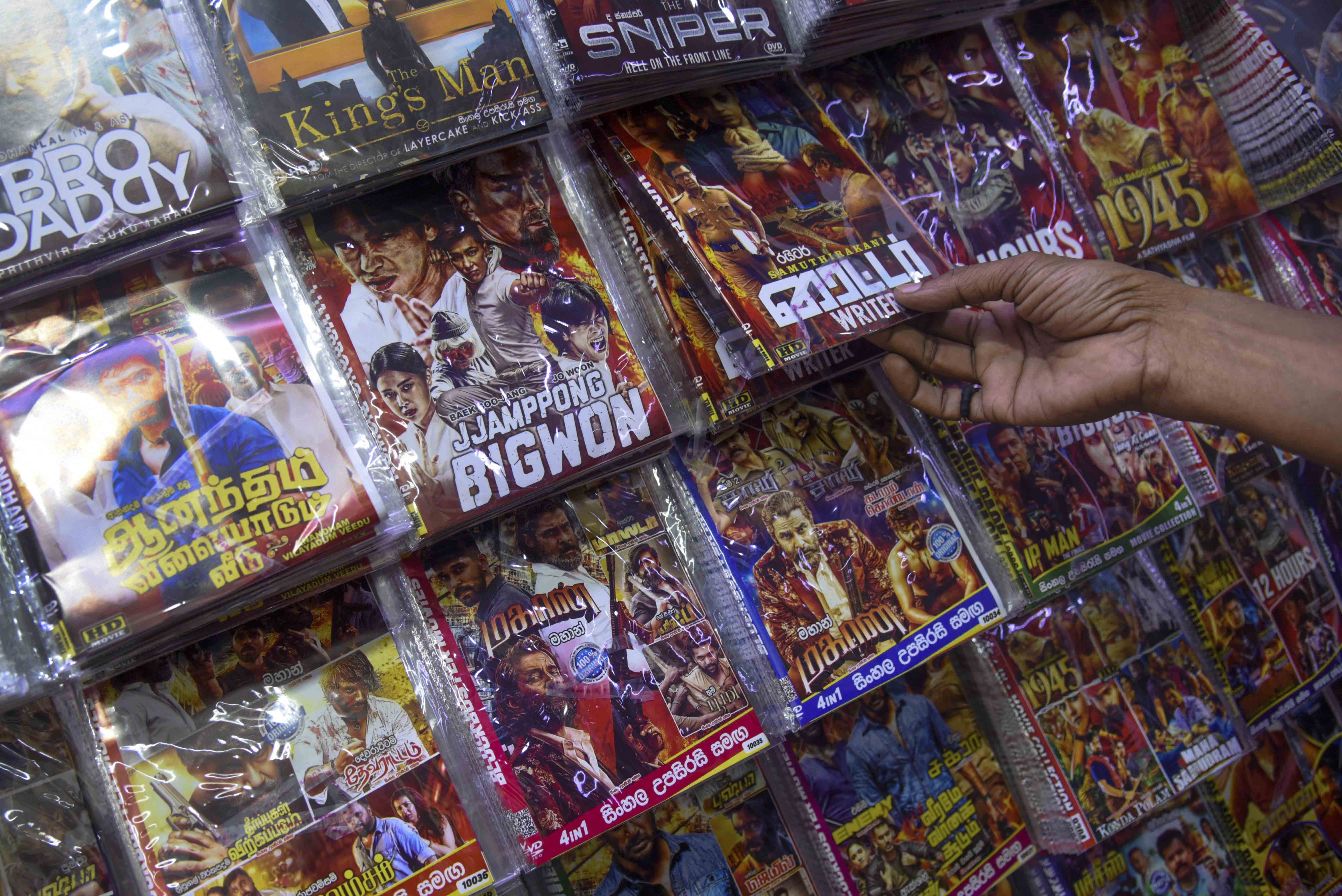
Raji agrees. “In Sri Lanka, I think DVD shops are on the decline because most people don’t mind streaming quality, they just want to watch a movie,” he said. “But real enthusiasts still prefer to watch on a Blu-ray or 4K disc, which is why they haven’t yet stopped producing those.”
Still, streaming services continue to make strides in both the variety of content available and their quality. While Netflix, Amazon Prime Video and a handful of regional and local sites — iflix and SRIFlix, for example — are currently the only mainstream paid-subscription streaming services available in Sri Lanka, others will most likely be quick to follow. Once this happens, the nostalgic familiarity of a neighbourhood DVD shop — no matter how alluring — will be difficult to choose over the convenience of an entire library of high-quality movies and TV shows at the tips of your fingers.
“Even the few customers who do come in tell us that it’s much easier to watch movies and TV shows online rather than buy it on DVD,” Lahiru said. “So I think this shop will either close down, or be changed into something else, something people will buy.”
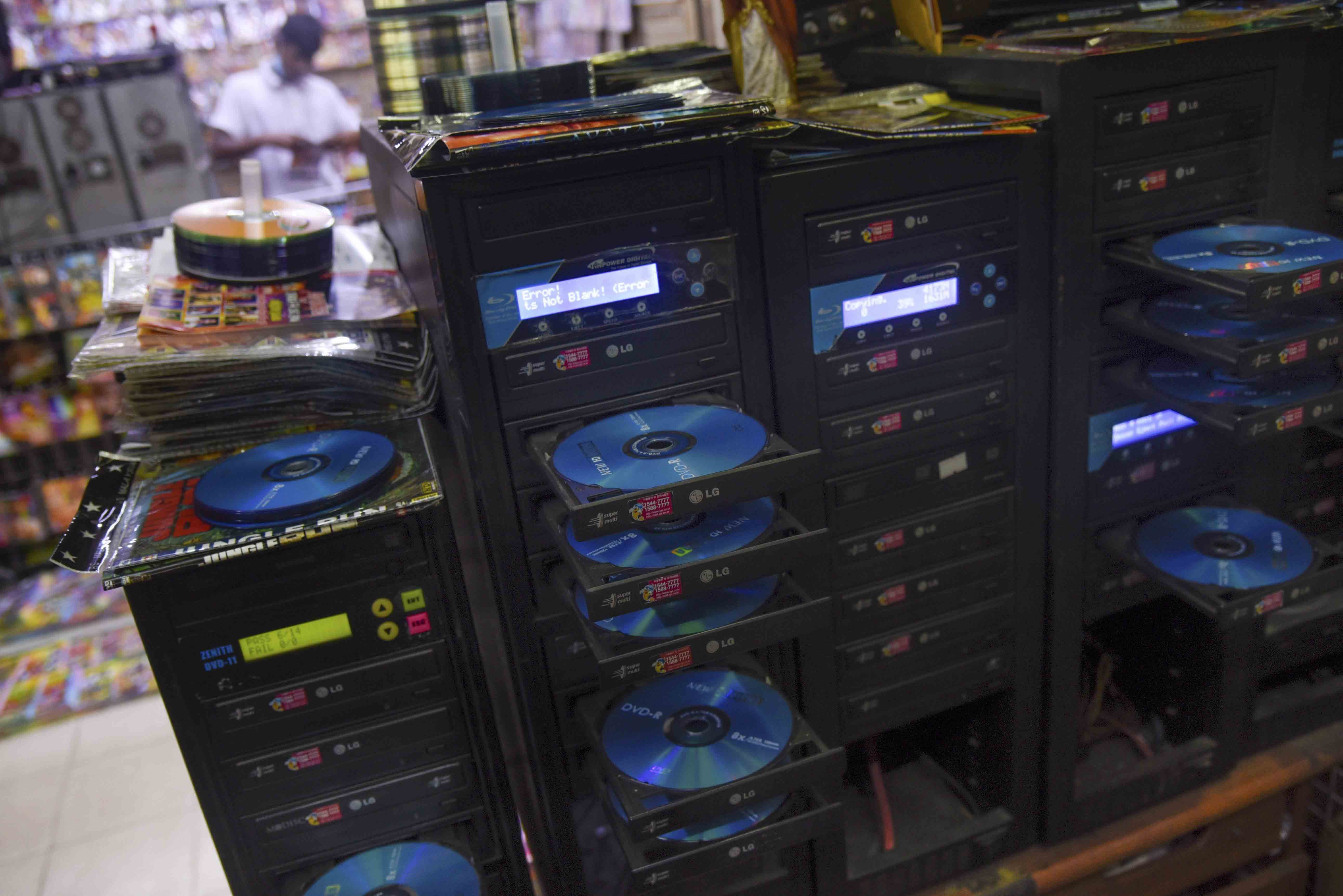
*Names have been changed on request

